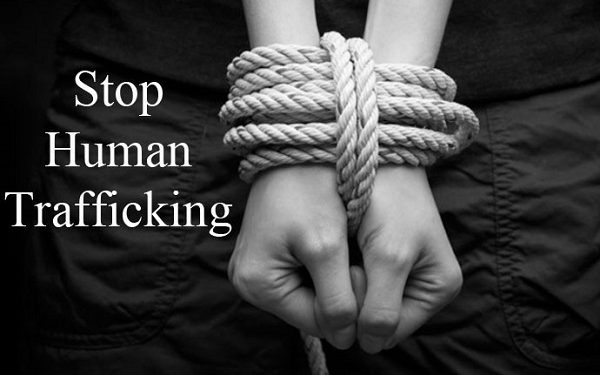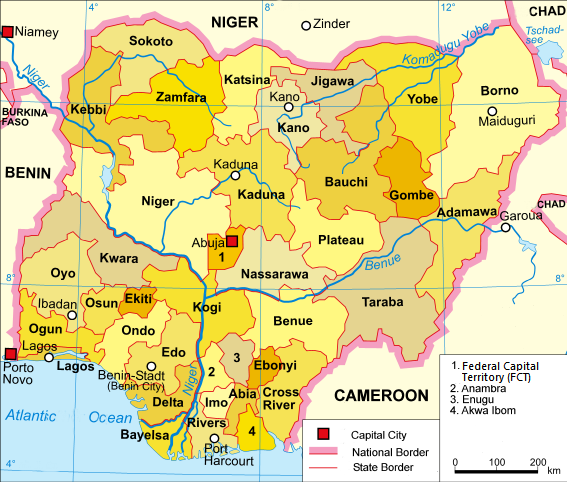The article reproduced below contains some horrifying data. It is being estimated that currently about 1.3 million people are living in slavery in Nigeria. The National Agency for the Prohibition of Trafficking in Persons (NAPTIP) has raised an alarm over the increase in organ harvesting in Nigeria. ‘Organ harvesting’ – as it is being called euphemistically – goes hand-in-hand with murder which is often treated as ritualistic murder by police officers. The scaring example of the fate of the ten-month old baby who was rescued recently (see article below) illustrates that law enforcement people as well as ordinary citizens should be vigilant. Moreover, those who order the heinous crimes should be apprehended and put on trial. And – as has been said repeatedly on this site – superstition should be eradicated from society by broad information campaigns and nationwide and universal education (webmaster FVDK).
Organ traffficking on the rise in Nigeria – NAPTIP

Published: March 15, 2020
By: The Nation (Nigeria) – Grace Obike, Abuja
The National Agency for the Prohibition of Trafficking in Persons (NAPTIP) has raised an alarm over the increase in organ harvesting in the country.
The Director General NAPTIP, Dame Julie Okah-Donli, explained that her agency will be concentrating more on the issue this year.
She said that in the last year, cases of Nigerians being trafficked to countries like Oman, Dubai, Lebanon etc have been on the increase. She said this in Abuja at the grand finale of the Not For Sale Campaign, a human trafficking enlightenment programme.
Okah-Donli added that the agency is considering creating a human trafficking registry that will carry the names and information of people convicted of human trafficking in the country.
Her words, “We don’t believe that the traffickers of persons or migration by Nigerians is reducing because people go to new countries now, so for me the issue of the figures dropping, I am not really sure about it.
I would say that there was a deal made between the EU and Libya to stop immigrants from crossing which is what has led to a reduced number of people taking the Libyan route but not necessarily because the figures are dropping.
“In the last one year, so many cases of people going to new countries, back in the days we did not know of migrations to Oman, Abu-Dhabi, Dubai, Lebanon etc, now there is so much illegal mass recruitment for so-called jobs to these countries and it is really huge but we are doing our best to ensure that we curb it. We are thinking of opening a traffickers’ registry to name and shame traffickers in the country.
“There is this the area that is not often looked into which NAPTIP is looking into addressing this year and it is the area of organ harvesting because people are just getting away with murder.
As long as I am concerned, I have this hunch that a lot of harvesting is going on but unfortunately some law enforcement agencies just rule it as ritual killings.
Last week, a ten-month old baby was rescued, they had taken out one of his eyeballs and they were about to take out the second eye when the two guys were caught.
“The police arrested him and we have been trying to get them to hand them over to us so that we can get to the root of the matter.
I want to know who wants those eye balls, what those eyeballs where meant for and where they were going to. We have to look into this very aggressively and we are going to be concentrating more on them.”
The British High Commissioner to Nigeria, Catriona Laing, said that currently about 1.3 million people are living in slavery in Nigeria.
Her words, “Human trafficking is one of the world’s most horrible global problems and we must all work together to stop this horrible scourge. Nigeria is a country that has particular challenge on modern slavery and human trafficking.
Up to 74% of the population is vulnerable, which is particularly due to poverty, culture, family pressure, peer pressure etc. This has led people especially from Edo and Delta states being vulnerable.
“When Nigeria returned migrants from Libya, it was realised that in 2016, 65% of the migrants in Libya where from Nigeria. We also have to confront the fact that there are up to 1.3 million people living in slavery in Nigeria which is a problem domestically as well.
The campaign has been really successful, reaching out to young people, especially women, and trying to show them there is an alternative. 88% of young women and 93% of family members had a positive reaction to the campaign.
Now we find out that 83% of young women in Edo State nurse starting a business as a huge career option for them. 57% intends to start their business in the next three years while 52% have been involved in training that will help them start a business.”
Source: Organ traffficking on the rise in Nigeria – NAPTIP

